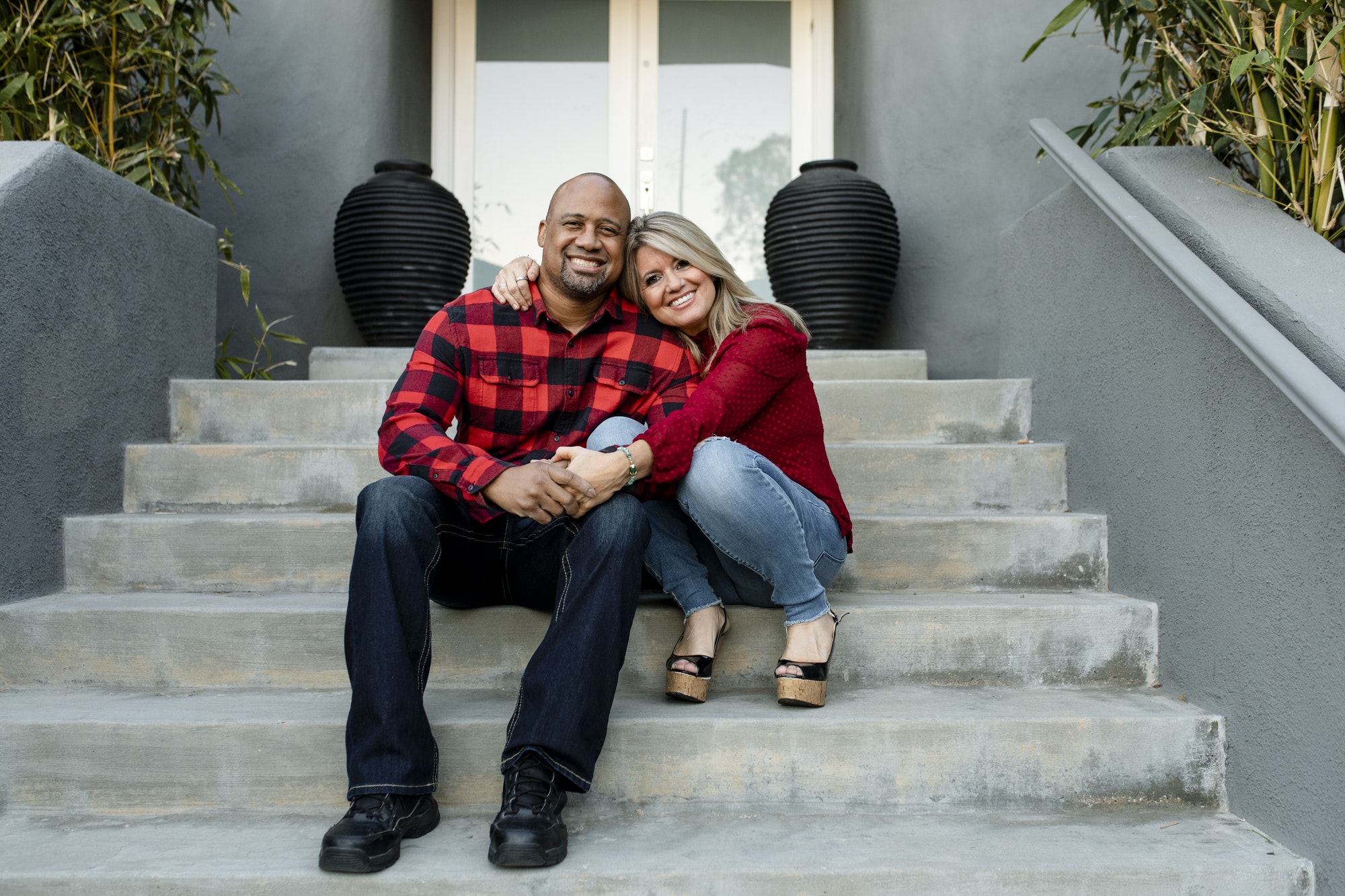

Whether you’re just starting a relationship, or you’ve been in one for decades, it’s always healthy to periodically stop and take stock of how things are going. Healthy maintenance is important for anything, and relationships are no exception! However, far too many people only check for the obvious problems that may come up in relationships, and miss the signs that something is wrong underneath the surface. That’s because they don’t check the “vital signs”: the health of those invisible core elements upon which your relationship is built. These include respect, attraction, sexuality, and communication, just to name a few! While each one of these elements deserves its own article, today I thought I’d focus on the one that I personally think matters the most: trust. The reason it’s so important is that, without it, none of those other core components of a healthy relationship are possible. That’s why it’s so tragic that so many people out there are either struggling with how to earn trust, or with how to build trust again once it’s been broken. If that sounds like something you’re struggling with, then you’re in the right place. Today we’re going to take a deep dive into addressing these issues. But, before we can do that, we’re going to need a clear understanding of the definition of trust in a relationship!
First we’re going to look at the broad meaning of trust in a relationship, and address some of the misconceptions about how it works. Then we’ll move into several ways that you can build trust with your partner moving forward. Finally, we’ll talk about how to overcome trust issues you may have from previous bad experiences. Let’s dive in!
Before we go any further, it’s really important to address one of the common misconceptions about trust, and the idea that trust is something that is inherently present at the start of a relationship. That’s simply not true. Trust is something that’s built up over time, and it’s unrealistic to expect trust to be present right off the bat! It’s not made out of big statements or gestures, but instead out of the accumulation of many small actions. It’s grown through witnessing someone’s words match their actions again and again over a long period of time.
As a love and relationship expect, I’ve met plenty of people who have been blindsided by a breach in trust. When it happens early into a relationship, often I’ve had to point out that there really wasn’t a lot of trust to begin with! How could there be, if there wasn’t any time for it to develop? We have to make the distinction between wanting to trust someone and actually trusting them. It’s the “wanting to” that’s present at the beginning of a relationship, but actually knowing that you can trust them comes later. The distinction is important, because if things go wrong as you get to know each other, you really can’t blame yourself for “wanting to trust” someone you like. And you can’t blame trusting them either, because there wasn’t enough time for any real trust to develop. I’ve found that looking at this this way can help people avoid trust issues later on.
So, what actually is trust? It’s a lot of things, but at its core it’s knowing that you can rest assured that your partner is always honest with you, that there’s nothing hidden in the relationship that’s going to hurt you, and that you’re respected enough to be told the truth even when it hurts. It’s the bedrock upon which you can build every element of your relationship.
Although much of building trust comes naturally, one of the key things that we need to understand about it is the timeframe. Trust takes a long, long time to build. It happens so slowly, it’s almost imperceptible. However, that’s not to say that we have no control over how strong it becomes and how fast it develops: we do! We just have to keep the process in mind, and understand that it’s the little things that matter so much more than any of the grand gestures meant to show trust. In fact, because it’s all about the little things, there are actually plenty of little steps that we can take to speed this process up. Let’s take at the three most powerful ways to build trust in a relationship.
It’s important to think about trust on a purely psychological level if we want to know what the best steps are towards developing it. Ultimately, it’s about safety. Your relationship, ideally, should be the ultimate safe place where you feel protected and insulated from any of the struggles you’re bound to face in your life. We all have defense mechanisms against pain and hurt, and trust is what happens when you know that your partner won’t be a cause of any of that pain. That’s why you can let your guard down and feel open and vulnerable around them.
This is particularly important to understand because of the way it affects the rest of your life! Trust in your partner goes way beyond your relationship: it’s an integral part of the sense of stability that you need to navigate difficult and unexpected challenges as time goes on. It’s essential to your greater well-being, because it’s such a fundamental part of your inner mental health.
So, with that in mind, it’s easy to spot one of the easiest ways to develop trust: being there for each other in difficult periods. The moments when you or your partner are hurting are the same moments that trust has the biggest opportunity to grow. If you both keep this in mind, and you support each other deliberately and thoughtfully when things are hard, then you can do a lot to develop the bedrock of trust that your relationship should be built on top of. The key is understanding that trust isn’t built during peacetime: it’s the rough patches that matter.

Honesty is an element of trust that is one of the easiest for people to misunderstand, so I want to take a moment to really explain it. Obviously, honesty covers all of the big things: not having an affair, not having dark secrets, not hiding money. But, if we focus on those things only, then we can miss the part of honesty where trust really develops: the day to day.
It’s so easy to tell white lies, especially when you justify them by not wanting to hurt your partner. But, they’re dangerous precisely because they’re so easy! The reason this matters so much has to do with the timeframe in which trust develops. On their own, little white lies don’t seem to matter, but they have a cumulative effect over time. After many years, passive dishonesty becomes a really hard habit to break, and it also becomes a lot harder to hide. The effect is a gradual wearing down of trust between you and your partner, even if the big things (like not having an affair) are in order! I’ve seen plenty of good relationships suffocate under a mountain of white lies, to the point where the couple doesn’t bother confiding in each other because they don’t expect an honest response. Instead of arguments and fireworks, these relationships fizzle out simply because the two sides slowly get to feeling like they don’t really know each other at all.
Avoiding this is simple. When you have a choice between the discomfort of being honest, and the comfort of lying, choose honesty. It seems like more work, but by working through the small things, you can avoid having to rebuild a broken relationship later on.
When we talk about ways to build trust in a relationship, it may seem counterintuitive to say that keeping up with your hobbies, seeing your friends, and pursuing your own goals is an important part of the process. After all, wouldn’t it make more sense to say that having trust in your relationship is what allows you to do those things without your partner worrying?
Well, it actually works both ways. It’s true, you need a healthy degree of trust in order to spend time apart doing things for yourselves. However, it’s precisely that time that reinforces the trust you have between each other. As I’ve mentioned before, building trust is a long process, so it’s these little things that accumulate over time and create a healthy dynamic between you and your partner. Making sure to spend some time apart is a great way to consistently reaffirm the idea that you don’t need to be keeping tabs on each other.
Each time you have a normal outing with friends, for example, is one more sign to your partner that you’re reliable and responsible even when they’re not around. Of course, this doesn’t work if you’re doing anything other than what you say you’re doing when you’re not together! But keeping up your life outside of your relationship, coupled with the honesty we talked about earlier, creates a sense of respect and acceptance of one another that really matters when it comes to building trust.
The other benefit of making sure to spend time apart is that it provides a kind of low-stakes stress test. If there are any underlying trust issues in the relationship, they’re almost certain to come up regarding the things you do out of sight of your partner, or vice versa. Obviously, I don’t mean that you should manipulate your partner into being concerned about what you’re up to, or that it’s healthy to worry when they’re not around! I mean that both of you simply going through with the things you’d like to be doing has the added benefit of bringing certain types of trust issues to the surface, where you can work on them together.
Of course, it’s not always so easy to maintain your individuality. Sometimes, you’ve been married so long that your lives have kind of melded together, and it’s tricky knowing how to reshape that dynamic without upsetting your spouse! If you’re in this situation, I’d recommend checking out our course in overcoming co-dependency.

What if you’ve been hurt in the past, or had your trust broken in a previous relationship? Sadly, this is a common problem with a lot of my clients: they’re in a new relationship, and even though things are going well, they feel like they have an internal roadblock keeping them from being vulnerable with their partners. Almost every time, it’s because of a past trauma. Sometimes all it takes is one awful experience, like discovering that your partner is having an affair, for long-lasting trust issues to develop!
If you’re facing this kind of situation, I know how hard it can be to believe that it’s ever possible to really trust again. But, in all of my years of doing this, I’ve seen enough success stories to know it can be done! The most valuable advice I have for you is to take the pressure off of yourself. Don’t beat yourself up for not being able to trust your partner right away, or for having trouble being vulnerable. Instead, make an effort to treat yourself with understanding, patience, and love as you settle into the relationship. The reason this kind of attitude is so important is that it takes a long time to build trust in a relationship, and it takes even longer if you’ve had your trust broken in the past. You have to be in it for the long-haul, so putting pressure on yourself to trust again as soon as possible doesn’t do you any favors. In fact, it can be a cause of stress and anxiety, which can in turn cause other problems in your relationship. Putting too much pressure on yourself can also lead to situations where you’re pretending like you’ve moved past your trust issues, but underneath the surface, they’re still simmering. Obviously, that leads to serious problems too.
The key really is to purposefully be kind to yourself when you recognize that you’re holding back, instead of being disappointed, angry, or impatient. Simply recognize how you feel, and don’t try to fight it. Instead, take the effort you would have spent on beating yourself up and, when you’re ready, communicate what you’re going through to your partner. I know the very nature of trust issues makes it hard to do that, but remember, you simply have to say how you feel. You don’t have to find a solution. It’s the simple act of opening up at all that’s a first step towards building trust with each other. What’s more, the problem will be out in the open, where you two can work on it over time. It’s precisely this process of tackling the issues as a team that nurtures trust between two people in the long run. Make an effort, but don’t rush it. Over time, you can work on those core elements of building trust in a relationship. Let’s recap what they are:
As this article comes to a close, I want to reiterate something: whether you’re just starting to date someone, or you’ve been married for decades, it’s always possible to take a proactive stance towards improving the health of your relationship. Hopefully you can use the tips in this article to either reaffirm that trust is alive and well in your relationship, or to confirm that it’s not present and take steps towards changing that. As always, if you need help crafting a personalized gameplan to address any issues in your romantic life, you can always reach out to me or any of the other coaches here at Happily Committed.
I sincerely wish you all the best.
Your coach when you want to know the definition of trust in a relationship,

No spam, notifications only about news, events and updates.

“How long before moving in together?” This is a question I’ve been asked time and time again throughout my coaching sessions, and it’s no surprise!

A long time ago, he made a mistake that hurt you deeply. Your relationship was rocked by infidelity, but you put in the work to

Is your man dragging his feet when it comes to popping the question? In your mind, your relationship has long been ready for marriage, but

During my time as a love and relationship expert here at Happily Committed, I’ve seen every kind of relationship you can imagine. Everyone who comes